Young Black Men Are Dying At Unproportional Rates: A Discussion
From ages 15 to 24 years old, Black men experience peak numbers of premature deaths due to homicide and suicide. Why are young Black men dying in unproportional numbers? We discuss it here!
(Top Left to Bottom Right) - Ahmaud Arbery, Tamir Rice, Trayvon Martin, Kendrick Johnson
By: Raki Jordan
I don't think society really wants to know the disproportional deaths of Black men; if so, there would be an outrage in why there's no mention of it. Even I was reluctant to write about this disposition, though, it isn't because of willing ignorance, but a sudden fear that I might be next in line to see the face of Death.
So, let us talk. I've lived on Earth for a little over two decades and lost five Black men I grew up with from homicide—all under the age of 21 years old. What's alarming is that if you ask around, the majority of Black people know, are related to, or know someone who knows or is related to a Black man who had been murdered.
According to The United States Census Bureau, Black women make up 50.75% out of the entire Black population in the U.S; despite Black men being born more often. What this doesn't tell you is that the population of Black men starts declining as they get older. By the ages between 40 to 44 years old, Black women start outnumbering them (this doesn't even account for them outnumbering Black men, not just by being alive, but also, from Black men being incarcerated). This puts the average age of Black men to be 32.5 years old (or 33 if you round), with a life expectancy of 68.8 years of age, compared to the life expectancy of White men at about 74 years old.
Now, how might this be? From 15-24 years old, Black men experience a peak of premature deaths due to homicide and suicide. According to the American Association of Suicidology (AAS), in 2014, 2,421 Black people died by suicide, with Black men making up 80.38% (1,946) of these suicides. And the numbers are increasing each year. In 2018, the number of Black male suicide was 2,578, with guns being the go-to method to kill themselves (this is also a common method among Black women); making suicide the 3rd leading cause of death of Black men between 15-24 years old.
With homicides, Black men are 15 times more likely to be murdered than that of White men. This accounts for Black males ages 1-19 years old to make up 35.2% of homicide victims. And ages 20-44 years old accounting for 28.9% of homicide deaths. Which makes homicide the number one leading cause of death for Black men 15 to 34 years of age; this is according to NVSS (National Vital Statistics Reports) 2016 report on leading causes of death.
The top causes of death for young Black men, based on a study from Michigan, Rutgers, and Washington University are:
Accidental death
Suicide
Homicide
Heart Disease
Cancer
Police Brutality
The numbers pertaining to the premature deaths of Black men are going to increase. By society not recognizing the increasing epidemic among Black men, there's going to be a further decline in the population of Black men in America. To elaborate further, society must look at what is contributing to the premature deaths of Black men, and eliminate the existing problem. And one way to slow down the rate of suicide is to express Black men by showing uplifting and positive imagery and influences. And to decrease the murder of Black men, violence within the Black community will have to be met with the eradication of poverty, that majority of Black people fall under. This, will then, dismantle the nature of the kill or be killed mentality many young Black men face walking the streets. This isn't mentioning underdeveloped American police force, that isn't trained to handle urban areas.
YOU MAY ALSO BE INTERESTED IN:
Is TikTok A Safe Place For Black Content Creators?
The rise of TikTok has seen Black content creators going uncredited for their work and a number of racist posts targeting minorities. Is TikTok a safe place for Black Content Creators? We discuss it here!
By: Emily-Ann
Here we go again, recently another social media platform has taken off with countless new accounts being made and a new means for people to come together and make content for our already oversaturated consumption. What’s one more social media account to add to your long list of profiles. Right?
Don’t run up and sign for tiktok just yet. Tiktok was created by Zhang Yiming, a Beijing-based company founded in 2012, and launched it’s app for IOS and Android users in 2017. The company is owned by ByteDance and worth $16.2 billion fortune and Zhang Yiming who is China’s 13th-wealthiest person. Reportedly making quite a bit of coins for himself and when I say coins, try thinking about 12 billion in 2018.
But who is regulating the tiktok app and why are there so many racist videos going around? This app is being downloaded by young impressionable people with billions of downloads by its users. It is becoming the new social media competitor.
#tiktok #BlackTwitter #racist ATTENTION TWITTER: This racist goes to the University or Houston and thinks it’s funny to joke about a issue that the black community struggles with. His name is Iance fontenot and is an RA. Do these tik tokkers think these issues are one big joke? pic.twitter.com/US54FRBLXs
— beyonce defence squad (@hautefeelings) April 30, 2020
More and more I am starting to see many black creators either not getting the credit they deserve, or being insulted by other account holders, who of course are not black. I recently came across a Twitter post on my feed shared by a young lady, whose name I will omit from this article. The post caught my eye because of the nature of the post. The post was of a young teen named, Colby Howell, a senior in high school from Helena, MT. The post he uploaded was insulting and insensitive in nature. The video is as tasteless as his sense of style, and what he deems as a sense of humor. I wasn’t surprised at the ignorance displayed by this individual. Sadly, there are many people like him on social media and around the world.
Is it safe to assume that your school condones racism? Because a student named Colby Howell made an extremely racist video and your school hasn’t addressed the issue?
— Leah (@AveMariaxoxo) May 2, 2020
pic.twitter.com/vhk9WDbI5A
The saying, “laugh now, cry later” comes to mind. Every time I see this type of content, I am constantly reminded that there are still people who think like this. Never mind the fact that countless people are dying right now, but yet he had time to put out such hateful and disrespectful content. I often wonder why tiktok is allowing such content to be displayed on their app. Aren’t they worried about the brand and stock decreasing in value? In my eyes the app has already decreased in value.
There have also been black creators getting fed up about not being credited for their work. The countless copy cats who get famous for their work. For example, creator of the Renegade dance, Jalaiah Harmon. Her copy cat took credit for the dance and thought that she could get away with it. Little did she know she would get called out on it. The story was everywhere on social media, and I caught wind of it when it hit twitter. Now you know black twitter will come for you, and it’s worse if you try to ignore or deny it. The lack of credit that black creators have to deal with. For example, Megan stallion challenge creator, Keara Wilson. Her story is just one of many in the bin of black creators. They do not get the credit they should have from the jump. Only after being called out did the copycat, Charli D'amelio admit what she did.
After stealing black creators content or making racist videos, we get pathetic apologies of them begging people to stop treating them a certain way, and only because their chances at getting into college get shot do they seem remorseful. Key word here “seem”, since they get a little taste of their own medicine. A pinch of what the black community has to deal with on a daily basis. They're changing their accounts or taking down these disgusting videos only after they get caught. It should have never seen the light of day! Yet, they already recorded and uploaded it to their accounts for views.
Future employers have already seen it. When will they learn that this type of behavior will no longer go unnoticed? Even when speaking about the African American community, they both refer to us as “Blacks/You blacks”. Wait, what? Everything that comes out their mouth, or what they type just sounds insensitive and not authentic. Just stop already, please you're making it worse!
I think it’s time for us as creators and artists to find a safe place we’re we can create and display our talents and not be copied, mimicked, laughed, or impersonated or worse by a group of white people who’ve been taught this type of behavior.
Why do we continue to support these companies or platforms that do nothing to protect the rights of the creators who make them the most money? I myself do not intend on signing up for tiktok at all, because of the increasing amount of racist content coming out of the woodworks. One twitter follower commented on the Colby Howell video saying, “ tiktok take everything else down but leave this racist ass shit up”.
I did enjoy watching the videos that were often shared among the black creators on twitter and IG. Lately, with all the insensitive thoughtless comments and videos I am seeing on the tiktok app, I want no parts of it.
YOU MAY ALSO BE INTERESTED IN:
SHARE TO SOCIAL MEDIA
US Surgeon General Jerome Adams Says Black People Need To Lay Off Alcohol, Tobacco And Drugs
US Surgeon General Jerome Adams urged Black people to slow down on “alcohol, tobacco and drugs” as he addressed the nation during a coronavirus task force briefing at the White House. We discuss why this pushes a false narrative regarding people of color.
Surgeon General Jerome Adams shows his inhaler during a coronavirus task force briefing at the White House where he urged African Americans to stay home
Evan Vucci/AP
By: Omar Cook
"Speaking of mothers, we need you to do this, if not for yourself, then for your abuela. Do it for your granddaddy, do it for your Big Mama, do it for your pop-pop." This was a quote from US Surgeon General Jerome Adams as he addressed the nation during a coronavirus task force briefing at the White House. Adams was giving a message to African Americans to stay home due to an increased risk of coronavirus exposure.
Adams stated that Black, Latino and other people of color should “avoid alcohol, tobacco and drugs. We need you to step up.” These statements were not only offensive to people of color by deliberately using cultural slang such as “big mama, granddaddy, pop pop”, but even more so coming from a person of color. Adam’s spoke to BET previously this week where he stated “we’re addressing the social inequities that have occurred and that can cause poor health in our society.” Among the reasons that he stated why Black people were more at risk were the inability to social distance because of the need to work, environments they live in, as well as higher rates of chronic disease such as asthma, diabetes, and lung disease.
PBS’ Yamiche Alcindor asked Adams about his statements and he responded “I use the language that is used in my family,” Adams explained. ”I have a Puerto Rican brother-in-law. I call my granddaddy, granddaddy. I have relatives who call their grandparents big momma. So that is not meant to be offensive.”
US Surgeon General Jerome Adams
It seems as if the tone towards Black people regarding Coronavirus has dramatically switched in the past few weeks as more statements have deliberately been made about African Americans being at risk. It was even suggested that a vaccine be tested in Africa even though African countries have some of the lowest fatality rates in the world regarding the virus.
To address a situation in health regarding African Americans is one thing, but to address it using the language Jerome Adams spoke with in an address to the nation further perpetuates a false narrative that Black people are reliant on alcohol and drugs; as if only Black people used these vices.
Adams also mentioned the fact that there is no scientific proof that shows people of color are "biologically or genetically predisposed to get COVID-19," but that they are "socially predisposed to coronavirus exposure, and have a higher incidence of the very diseases that put you at risk for severe complications of coronavirus.” The statements sound even more ridiculous when you break them down piece by piece. Jerome Adams seems to be a puppet that the White House is using to make statements regarding the Black community and coronavirus but it is imperative for African Americans to read between the lines and not feed into the media’s agenda of making Black communities out to be unhealthy environments.
The White House should be figuring out a solution to help avoid further spread of the virus into Black communities instead of delivering divisive statements at a time that we should all be coming together.
YOU MAY ALSO BE INTERESTED IN:
SHARE TO SOCIAL MEDIA
The Truth Behind The First Black Women Millionaires: Madam C.J. Walker And Annie Malone
Netflix aired its new series, Self Made: Inspired by the Life of Madam C.J. Walker, but there are several inaccuracies that discredit two prominent black entrepreneurs. We discuss it here!
Madam C.J. Walker and Annie Malone Turnbo
By: Emily-Ann
Netflix aired its new series, Self Made: Inspired by the Life of Madam C.J. Walker and let’s just say I was disappointed in the many inaccuracies the series portrayed throughout its run. If you are going to tell a story about a woman of color let’s stick to the facts. Our history has already been told by people who want to hide the truth about our contributions to society and the country we helped build, our tribes, cultural practices, and African religion. What about the real story of Anne Minerva Turnbo Malone?
Self Made: Inspired by the Life of Madam C.J. Walker
Annie Minerva Turnbo was born on August 9, 1877 in Metropolis, Illinois. Her parents were former slaves. Annie’s love for hair care began in school and she was into chemistry. During her educational years, she often fell ill and had to miss classes. After the death of her mother and father, Annie began living with her sister and started practicing hairdressing while under the care of her sister.
Annie Turnbo Malone
In the 1900's Annie developed her own hair products, her own line of non-damaging hair straighteners, special oils, and hair-stimulant products for women of color. At the time, women would use damaging alternatives like goose fat, heavy oils, and bacon fat. All which would cause heavy damage to the hair and scalp. Annie named her product “ Wonderful Hair Grower”. Sound familiar? Octavia Spencer, who played Madam C.J. Walker did mention it as part of her pitch in the market scene. You can also find the name on many of Madam C.J. Walker’s products.
Annie was one of the first black female millionaires, built many schools and employed many black workers. In the Netflix series she was portrayed as a jealous rival who based her intention to get even based on colorism and a stolen formula. While it was true they were competitors in real life, Annie patented the rights to the hot comb and was very active in donations for black students in many colleges. She named her company Poro, and later met Sara Breedlove, known as Madam C.J. Walker who did in fact become a sales representative for Annie and her company. This was before Sara went off and did her own thing. Did you know the word, “Poro” is the West African word meaning physical and spiritual growth?
Let’s clear up the whole colorism issue that was obvious throughout the series. Annie Malone was not bi-racial, and in many pictures of Annie you can clearly see she was of a darker skin tone and colorism was not a factor among the rivals. The writers of this series made it seem like the relationship between Annie and Sara was a compare and contrast of the advantages and disadvantages of having light or dark skin color, which is an old tactic that the media has brought to viewers time and time again. Not dismissing the fact that skin tone wasn’t an issue as it was definitely an added element in the 1900’s but it’s getting old and more of us are woke to the media tactics used against the black community.
Annie Turnbo
Annie eventually settled in St. Louis, Missouri and built her business and hair schools there. She sold her products “Poro” and “Wonderful Hair Grower” door-to-door. Her business success allowed her to travel to Caribbean Islands and all over the United States selling her products to African American women.
Annie also built an orphanage and the people of St. Louis named a street after her. Annie Malone was one of the first female black millionaires and Madam C.J. Walker joined her in her ranks as a female millionaire philanthropist and business woman of their time. Both equally have contributed to the progress of the African American community and providing employment to thousands.
Poro College of Hair and Beauty
Let’s give the correct black woman her credit where it is due. Now they also fabricated details pertaining to Madam C.J. Walker’s life for example, her daughter actually married three times before her death in 1931. Her lovers did not include women. Her death was due to complications of the same element as her mother (hypertension). There are so many facts missing from this story. Give us your feedback and leave a comment on our page. What are some of your thoughts about the series?
YOU MAY ALSO BE INTERESTED IN:
SHARE TO SOCIAL MEDIA
Sex Trafficking Is A Real Crisis: Why Are Black Women Under Attack?
Sex trafficking is a real problem and African American women make up the highest percentage of victims. Why are Black Women under attack? We discuss it here!
By: Omar Cook
We’ve been hearing this issue of human sex trafficking and also an influx of Black girls coming up missing. The 2 issues go hand in hand. Sex trafficking is a real problem and African American women make up the highest percentage of victims.
According to the FBI, Black women make up 40 percent of all sex trafficking victims in the US while according to the US Census Bureau, African Americans only make up 13.1 percent of the population. Even WORSE, Black girls make up 55 % of all prostitution-related arrests in the U.S. The numbers are sick. There are a few reasons why the arrests of Black girls are so high.
Sex trafficking is forced slavery, which involves women being forcibly kidnapped and sold as sex slaves. Sex trafficking also involves the coercion and exploitation of women who come from poor or inadequate support systems. Underaged girls in low income environments are being taken advantage of and used for prostitution. Instead of receiving actual help, the women are arrested and judged as prostitutes, which is the reasoning for the high arrest records of Black girls. Underage Black girls being sold for sex are not criminals, they are victims. Why is it that the criminal justice system is faster to label these women as criminals rather than giving them the help that they need?
One high profile example of this is the case of Cyntoia Brown, who at 16 years old, was sentenced to life in prison for killing a 43 year old man who she feared was about to take her life, during a sexual transaction. Brown was eventually released after 15 years last year after being granted clemency, but how many other Black girls are in a similar situation that is not gaining national attention?
Cyntoia Brown
In 2018, the Black and Missing Foundation reported that roughly 64,000 Black women and girls went missing. 64,000.
“African American youth are at increased risk for domestic minor sex trafficking, with being female, living in an urban area, and experiencing abuse prior to trafficking all being factors that are associated with risk for sex trafficking. Of the over 300,000 minors in the U.S. who are victims of domestic sex trafficking, it is estimated that 43 percent are African American girls,” according to research by Thema Bryant-Davis, PhD., of Pepperdine University.
In 2017, there were mass reports of Black girls going missing in Washington D.C. “A few years ago, around 80 girls in Washington, D.C., went missing in a month, and it was crazy to me that nobody was talking about this. I started doing research and couldn’t find anything about it,” said Imani Blair, a rapper from Virginia. “Nobody was talking about it. No news was talking about it; and that made me feel some kind of way. And the more research I’ve done it, the more I’ve learned that this is a really big problem in our community.”
Sex trafficking is a major issue around the world, and it has no color boundaries, but the facts are real; Black women have been a major target. Sex trafficking is directly related to billion dollar money making industries which include, pornagraphy, prostitution, and the simple fact that there are men out there that are willing to purchase women as sex slaves and be held against their will. The porn industry continues to grow as the internet evolves and what’s crazy is that you have no way of knowing whether the video is consensual or not from the participant. As the demand for sex related entertainment increases, the demand for participants will also increase, and what’s a better to save money than by gathering “free” participants? Think about that.
It is imperative that we begin to closely watch out for women in our community and in our home. Women should be aware of their surroundings at all times, not walking around paranoid, but aware. Always try your best to not walk alone at night in poorly lit areas and keep your phones charged. Be careful taking Ubers or Lyfts and let someone know every time you get inside of transportation that is not yours.
As a Black male with 4 Black sisters coming up under me, hearing stories like this makes me more cautious of their safety. We should not have to live our daily lives worrying about issues like this, but unfortunately, this has become a true reality. Be safe.
National Human Trafficking Hotline
1 (888) 373-7888
SMS: 233733 (Text "HELP" or "INFO")
YOU MAY ALSO BE INTERESTED IN:
SHARE TO SOCIAL MEDIA
The Journey Of Being A Black Creative
Being a creative and balancing everyday life is not an easy task. Between work and creating content, it can be easy to hit mental blocks. James Teague discusses his personal journey of being a Black creative!
By: James Teague
One thing that I admire so much about all creatives is their come up story. Almost every creative has their own unique story about where they first started to where they’re currently at. What makes this so unique is that although each story unfolds differently, we all have a common goal: to live our lives and be happy on our own terms.
Recently, while at work, I was listening to The Joe Budden Podcast, and they were discussing how this new episode, “The Terrain,” just so happened to fall on the five year anniversary of when the podcast was created. The team discussed their thoughts, feelings, and personal pivotal moments revolving the development of their platform. Joe Budden spoke to the crew about recognizing their impact within the last five years. One thing that stuck out during this conversation was, “As a creative you just never know what works and you just have to try shit.” That one single quote ultimately defines what being a creative is.
The Joe Budden Podcast
As a Black creative listening to Joe, Rory, Mal, and Parks speak about maneuvering through their trial & errors and comparing it my own personal battles growing into my role with content creation, I was really inspired to know that I wasn’t the only one who felt similar thoughts along this journey. There’s always ideas and content building in our heads, but the problem always becomes “how do I execute this?”
Sometimes, we create this mental battle in our own heads on whether to push the button on pursuing an idea or not only to psych ourselves out and throw the said idea onto the back burner. Then, suddenly, the universe humbles us by making us see someone else come out and execute the EXACT SAME IDEA we originally came up with. Whether it’s our environment unintentionally playing a role with shaping our perception on our dreams, how we might personally view our own work, or if past situations are still holding an affect on how you want to move with your content, sometimes it’s just necessary to work on looking past all roadblocks holding and just really throw something to that creative wall and see what will actually stick.
This has been the story (or should I say struggle) of my life as a Black creative. Speaking from personal experience, while building my foundation as a Black creative writer, going in between scrolling through my social media timelines, looking at my environment, and factoring in my living situation, I would frequently allow my circumstances to get the best of me and my creativity. In my head, there’s been this grand vision of what I want a creative work environment to look like. Unfortunately, because of where I'm at and where life was taking me this past year, it was tough to stay on task, and I constantly focused on the wrong things.
It made me feel like I wasn’t doing enough, especially when the antics at my day job kept playing with my emotions. Being creative while balancing a job that’s not aligned with your purpose is a continuous headache. But through the universe and a couple of personal affirmations, I began to realize that everything I asked for and wanted to be with my creativity has already come to life for me.
It may not exactly look how I pictured it in my head, but it is still coming to fruition. I had to understand and realize that I am exactly where I need to be on this journey and I had to continue to grow in this journey with my writing, my creativity, and my goals. Rory and Mal, while talking about their come up on the podcast, explained that the pod was their first time coming into the media world; and although they did not necessarily have the same media experience as their current creative peers, they had to learn by growing with their brand. Mal explains, “You grow with the platform. You grow with your people. You Grow with your audience.” It’s our priority as creatives when we are invested in our talents, platforms, or ideas, to make sure to trust our process and grow with our creativity. Our minds and ideas are so powerful. You never know how far your ideas can take you until you decide to bet on yourself. And when that day comes, then that will be the beginning of a new life.
YOU MAY ALSO BE INTERESTED IN:
SHARE TO SOCIAL MEDIA
White Saviorism in Black Movies: Can't We Help Ourselves?
From The Blindside to Harriet, movies centered around a Black protagonist seem to have a certain commonality among them. Why is White saviors a lingering theme among Black movies? We discuss it here!
By: Raki Jordan
From The Blindside to Harriet, Black movies or movies centered around a Black protagonist always have a certain commonality among them all. The very essence of Black movies is centered on the premise that they cannot help themselves, unless, some form of 'whiteness' (may it be physical or spiritual) is involved in helping the Black protagonist achieve their goal. The questions must be asked: Why is White saviors a lingering theme among Black movies? Can't we help ourselves? And if we can't, then is the trope of a white savior an ideology that Black and non-Black people cannot uplift themselves, without the guidance of a White hero?
The term 'white saviorism' is defined as an act or the willingness to help and/or control the narrative of non-white people—which, then, portrays White people as a hero. White saviorism in movies is not a new practice; the fundamentals of it had been around since cinema became an American past-time. A prime example is a film called, To Kill a Mocking Bird (1962). The ideology of placing White folks as the center of Black films shows that Black people cannot provide from themselves.
This is rooted in the concept that Black people lack the moral compass to make rationalizations, that results in the betterment of their predicaments. And the idea is that Black people cannot reach this level of morality—virtue—ethics, unless, it is taught or portrayed through White folks. This, then, will spark a flame within the Black protagonist to better themselves or others, in some way. We've been soaked into the conditioning of White saviorism in movies, that we give no mention that this concept shows the narcissistic complex of White people. One group is shown to be a hero—a Messiah in some form, while the other is seen as a savage—simple-minded group, who always needs help.
Joe Alwyn in Harriet. Photo by Glen Wilson / Focus Features
When we think of White saviors in Black films, we pictured the basic movie where a white teacher goes into an inner-city public school (they have no business going into), and is the inspiration in the students' lives, giving them the 'encouragement' to graduate and do better. Let's steer from that cinematic trope, and focus on the evolved version of White saviors in films:
In the 2019 'biopic' movie Harriet, we can see the evolved version of White saviorism in today's society. The movie surrounds Harriet Tubman as the leading protagonist, who's escaping to and from the shackles of slavery, to free her people. It seems simple enough. However, looking at it closely, the movie focused on her only being able to escape and have confidence because she's getting visions from some outer force. Let's considered this force to be God. In the time Harriet was alive, the depiction of God was solely limited to the imagery of White people. Not only that, but the movie takes away Harriet as a Black woman who was fueled by fear and passion, which led her to be able to travel great lengths and free hundreds of slaves.
Harriet is a cesspool of White saviorism as it doesn't portray the Black protagonist as someone who can do for themselves, but relay of the spiritual concept of morality from someplace else. Looking much deeper into the film, we as viewers, turned to hate the Black bounty hunter (who's a fictional character), and admire—even going as far as to sympathize with the slave master, who 'saved' Harriet from being killed by the Black bounty hunter.
Although the film was created to show the strength of a Black woman, her strength was only gained through spiritual enhancements and the help of a White man. This undermines the ability of a Black woman to be able to do all those things, on her own. This concept is even seen in Django Unchained, Hidden Figures, Green Book, 12 Years A Slave, and many, many more. And yes, even in the newest Black centered film, Queen and Slim.
White saviorism in Black films undermines the reality of Black people. In every Black film, there's one or sometimes multiple White individuals, who happens to uplift or help Black people in some way. This concept takes away the very reality of how society is towards Black people. The idea that there's always a beckon of hope lingering in the air, lessens the fact that America dislikes Black people in many ways, but only love them when they are under its boot. When will an accurate depiction of slavery, Black triumph—resilience be produce, without the narrative of White saviorism? Or is it too late to create one because everyone is conditioned to the White savior concept?
YOU MAY ALSO BE INTERESTED IN:
SHARE TO SOCIAL MEDIA
The March Madness Of HBCU Bands: Honda Battle Of The Bands Delivers Once Again
Honda Battle of the Bands has always been considered the Mother of all Band Showcases. We recap all of the action from this year’s competition!
The Hampton University “Marching Force” via Steve Schaefer
By: Baigen Seawell
ATLANTA, GA — Sport is defined by physical exertion, skill and the spirit of competition. When one thinks of Marching Band, the word “sport” may not be the first word that comes to mind… but at HBCU’s, some bands are arguably more of the attention grabber than the sport itself.
HBCU Marching Bands compete in the same way that traditional sports do; with the x’s and o’s on the field, the band does the same with intricate formations and arrangements with just a week’s time to prepare in some cases.
Even before the football teams take the field, and far after the teams have left, bands participate in their March-Ins, Zero and Fifth Quarter: a battle in the stands displaying their musical prowess. The display seen at sporting events is only a fraction of what is truly displayed.
Outside of halftime field shows and stand performances, bands have the opportunity to show their independent talents at Showcases and Battle of the Bands. Whether it’s the Magic City Classic, National Battle of the Bands or the famed Bayou Classic, their time to shine is exemplified.
Tennessee State University, Aristocrat of Bands
But the Honda?
Honda Battle of the Bands has always been considered the MOABS: Mother of all Band Showcases.
Started 17 years ago in Atlanta’s Georgia Dome, the purpose of the Honda was to highlight and recognize HBCU Marching Bands. A total of eight bands are invited and prepare vigorously for the exhibition in January, and receive a hearty check to support their program.
Something similar to Selection Sunday in its own right, the desire to be picked to perform in the Honda is something that many schools take seriously. Voting stems from one popular vote, another three from Band Directors and University Presidents, and the final four hand picked from Honda… and when the dust clears, the final eight have a little over a month to put together a field show for over 50,000 fans in the Mercedes Benz Stadium.
Prior to the big day, bands would travel around Metro-Atlanta to local high schools, and give them a taste of what HBCU Bands can offer. Some programs even give high school students opportunities to audition on the spot for a place in the band the following year. Something that could be compared to a scouting combine to athletic standards.
WHO WAS THERE?
The 2020 Honda Battle of the Bands took place January 25, and featured schools from the MEAC, SIAC, SWAC and independently competing institutions. They included:
- The Benedict College Marching Tigers “Band of Distinction” (who received the most votes in the pool)
- The Florida A&M University “Marching 100” (who had not appeared in the Honda since 2010)
- The Grambling State University “World Famed Tiger Marching Band” (under the direction of Nikole Roebuck, the only female director in the Honda)
- The Hampton University “Marching Force”
- The Jackson State University “Sonic Boom of the South”
- The North Carolina A&T State University “Blue and Gold Marching Machine”
- The Prairie View A&M University “Marching Storm”
- The Tennessee State University “Aristocrat of Bands”
THE MUSICAL CATALOG
The band would participate in their “Mass Band” arrangement, paying tribute to the Queen of Soul, Aretha Franklin.
Bands would play included modern songs like “HOT” by Young Thug, featuring a lights off display from the Tiger Band of Distinction. Drum Majors would don glowing maces, while the band would create a display of the words “HOT,” and “LIT!”
Tennessee State played the “Power” theme song, while asking the question everyone has on their mind: who shot Ghost?
Grambling played an old school bop, “Happy Feelins” by Frankie Beverly and Maze, while PVAMU rang out the tunes to “I’m Goin Down” by Mary J. Blige.
THE “POST-GAME” BREAK
The playlist and field performances that came along with it was nothing short of awe-inspiring. The “Halftime” performance would be by Tank, who discussed his stint at HBCU, Morgan State, while discussing the importance of music in his life.
The importance of music, and musical performance is what draws people to the Honda yearly. But the art, and sport of Marching Band is what has been preserved for decades, and continues to leave a cultural influence to mainstream media.
Beyoncé’s Homecoming which gave a nod to Marching Bands, Lizzo featuring Southern’s Human Jukebox in Good as Hell and Drumline stemming inspiration from NCAT, highlight HBCU Marching Bands, and have inspired thousands of young black children to take the route of musical performance to this day.
Even though the Honda has since passed this year, we look to push young black musicians to consider “taking their talents” to HBCU musical programs. Outside of HBOB, the American Honda Association has donated $9 Million in grants and scholarships to HBCU’s around the country.
Marching Band is something that could be considered a short 12 minute performance for some, but for these bands, and HBCU bands and fans across the country, there’s more that meets the eye… and Honda is one of the best ways of proving that.
YOU MAY ALSO BE INTERESTED IN:
SHARE TO SOCIAL MEDIA
Suffering In Silence: Top 3 Reasons Why African Americans Fail To Seek Mental Health Care
Many mental health issues get swept under the rug in the Black community because our people fail to seek help. Here are the top three reasons why African Americans fail to seek mental health care.
By: Risa Smith
Many mental health issues get swept under the rug in the Black community because our people fail to seek help. Dealing with mental issues is often seen as a weakness or laziness and the advice of the elders would be to "toughen up and keep it moving", or "pray about it". Here are the top three reasons why African Americans fail to seek mental health care.
Not Enough Doctors That Look Like Us
Throughout medical school, the Blacks were always outnumbered by a landslide. No matter how qualified, we had to work harder than most to even be respected in the field. Damon Tweedy, M.D. shared his experience of starting as a Duke Medical student only to be mistaken as a custodian. It is hard enough to live in fear of having a social stigma regarding a mental illness, only to walk into the doctor's office to find someone who does not understand or can’t relate to you. The gap can be bridged as physicians gain more cultural competency.
Faith And Spirituality
While God certainly has the power to heal, having an awareness of what you are struggling with allows for much quicker healing than denial. It is imperative to both rely on your spirituality and faith as well as medical and therapeutic treatment depending on the severity of the condition.
Lack Of Access To Quality Care Or Uninsured
About 27% of African Americans live below the poverty level compared to about 10.8% of non Hispanic whites (American Psychiatric Association). Some are not able to afford the cost of healthcare or afford the medications prescribed to them. I'm sure you have that one cousin that will never go to the doctor because they just don't want to pay that co-pay!
Whatever the reason is that you have not taken that step to get mental health care, please do not suffer in silence!
*Risa Smith is a physician assistant and blogger for www.realtalkidentity.com! Click the link to check out more of her content!
YOU MAY ALSO BE INTERESTED IN:
SHARE TO SOCIAL MEDIA
Stephanie Isioma Talks Maxim Cover Girl Competition
Model Stephanie Isioma is chasing her dream by currently competing in the 2019 Maxim Cover Girl Competition. We talked with Stephanie Isioma about her journey into modeling and her aspirations for gracing the cover of Maxim!
By: Omar Cook
Model Stephanie Isioma is chasing her dream by currently competing in the 2019 Maxim Cover Girl Competition. This competition provides an opportunity for major exposure and a $10,000 cash prize. She currently sits in the top 10 and is looking to advance to the next stage in the final top 5. Stephanie is originally from Nigeria and currently resides in Toronto, Canada. She graduated from York University with a bachelor degree in Culture and Expressions. Stephanie has an ideal model height at 5”11 and loves to sing and dance for fun.
“I am a very smart and happy young lady with a huge dream of becoming a professional model sometime in the future and also own a business that I can nurture till growth. I can be very quiet when I want to be, especially around people I am not too familiar with. I can also be a loud mouth when it comes to talking and this only happens around people I am familiar with. I can be very shy sometimes. I love shopping and looking good and I also hope to travel around the world, doing what I love doing, which is modeling and just motivating and having an impact on someone, sending out a message to never give up no matter what.”
You can vote for Stephanie Isioma HERE!
We talked with Stephanie Isioma about her journey into modeling, check it out below!
QUESTION: What does winning this competition and gracing the cover of Maxim mean to you?
Stephanie: I love modeling, and being a part of and winning the maxim cover girl competition, will be an avenue to hone my modeling career, start a business and nurture it till growth. If I am voted as maxim cover girl, some of the cash price will be given to a mental health facility. It is to be taken seriously because it affects the average individual and also will be a motivation to people.
QUESTION: What have been some of your biggest challenges with being a professional model?
Stephanie: The colour of my skin
QUESTION: Where do you see yourself and your career in the next 5 years and what do you hope to accomplish with your career?
Stephanie: In the next five years, I see myself and my career higher than where I am now; accomplished being an international model, getting all those great contracts and deals. I would have established my own business and basically bless and motivate people all over the world.
QUESTION: What sacrifices have you had to make, to make your dream a reality?
Stephanie: Having to put myself out there, despite the fact that I started modeling professionally in 2017. I was way older to have been able to find myself a legit modeling agency to sign me. I got turned down so many times but I never gave up. Until I found Gemini models, they called me in for an interview because they liked my pictures, I went in and that was how I have been working with them and ever since then, they have been my Mother Agency for a year and some months.
QUESTION: What does success look like to you and what motivates you?
Stephanie: Setting goals and working towards achieving them, and knowing what you want to accomplish and have created a plan is what success is to me. Working the plan in order to achieve success. One of my biggest motivations is trying to stay on top of the game no matter the outcome,positive or negative. It has taught me to always keep grinding, work harder and be a better version of myself.
QUESTION: What advice can you give to others who are looking to have a career in modeling?
Stephanie: Always talk to God first, always believe and have faith in yourself. Never look down on yourself, never give up and always believe that you are not just the best but deserve the best.
QUESTION: What has been your greatest achievement or moment in your career so far?
Stephanie: Being able to compete in Top model search Canada 2018, Miss world Canada 2018 and Fashion on Yonge.
YOU MAY ALSO BE INTERESTED IN:
SHARE TO SOCIAL MEDIA
"You Talk Like A White Person": Why Is Articulate Associated With White?
We’ve all heard the phrase “you talk like a white person”, whether it was you saying it or someone said it to you, or you just overheard it, but when did speaking properly and pronouncing your words become associated with white people?
By: Omar Cook
We’ve all heard the phrase “you talk like a white person”, whether it was you saying it or someone said it to you, or you just overheard it. Probably out of our own youthful ignorance we figured this phrase was acceptable to say to each other. I’ve always wondered that since black and white people speak the exact same language in this country, when did there become a distinction between talking black and talking white? Depending on what part of the country you may be from, you may have variations in your slang, I get that, but when did speaking properly and pronouncing your words become associated with white people?
I’m all for speaking comfortably around your friends and family, but when it comes to saying someone speaks white because they are articulate, that’s pretty much a diss to all black people saying that we don’t normally speak our words correctly, and we’ve accepted this as ok. I never actually realized until I got older just how disrespectful this phrase was. There are certain black people that are not comfortable in the way that they speak and their own education that they feel they need to put down the next black person for actually speaking with some sense. Speaking in ebonics seems to be a requirement in the black community or you get outcasted into the “you talk like a white person” category.
The biggest issue with this is that we’re giving white people the benefit of the doubt by saying they naturally speak better than us, which is untrue! The notion that good and proper is associated with white has to go. In reality, there’s black people out here trying to run businesses and build brands for themselves and nobody has time to be sounding ignorant making business deals or networking. Speaking with some sense is not speaking “white”, it’s speaking like you learned something in english class and the millions of dollars that are attached to your name depend on whether you can articulate your business plan correctly. “You talk like a white person” is out.
YOU MAY ALSO BE INTERESTED IN:
SHARE TO SOCIAL MEDIA
Cyntoia Brown Granted Clemency After 15 Years Is Long Overdue
After 15 long years, Cyntoia Brown was granted clemency after being sentenced to life in prison at the age of 16.
By: Omar Cook
Cyntoia Brown was given a life sentence for killing Johnny Mitchell Allen, 43, who bought her for sex at the age of 16 years old. After serving 15 long years in prison, Brown who is now 30 has been granted clemency by Tennessee’s Governor Bill Haslam and will be released to parole supervision on August 7.
"Cyntoia Brown committed, by her own admission, a horrific crime at the age of 16. Yet, imposing a life sentence on a juvenile that would require her to serve at least 51 years before even being eligible for parole consideration is too harsh, especially in light of the extraordinary steps Ms. Brown has taken to rebuild her life. Transformation should be accompanied by hope" Haslam said.
Brown’s case has been a high profile case for over a decade and is an example of how people can get caught up in unfortunate situations. In this case, the prosecutors said that Brown shot Allen in the head as he was sleeping, stole his money, guns, and truck and fled the scene. Brown claimed that she had a fear for her life and took the money in fear of coming back empty handed to her pimp named “Cut Throat.” Brown was a victim of sex trafficking at an early age and was tried as for her crime as an adult.
Brown was the feature of a 2011 documentary called "Me Facing Life: Cyntoia's Story," where she describes being forced into a life of prostitution at a young age, sex-trafficked and raped repeatedly. This nightmare reality that Cyntoia Brown was subjected to only got worse when she was handed a life sentence. This case shows the lack of mercy, compassion and understanding that the justice system has for juveniles especially given the circumstances surrounding Brown and how the case happened. Being sex trafficked is one thing, and being sentenced to life as a juvenile for killing the person involved in the act of your sex trafficking is another nightmare in itself. Cyntoia Brown was dealt a bad hand and it’s about time that her life be given a second chance.
This case shines a light on the injustice of sentencing a juvenile to a life sentence. There are many things wrong with the current justice system and at some point there needs to be some reform. It’s not hard to see that this punishment was too harsh, but how many other juveniles have been subjected to ridiculously long sentences without being given a second chance? If Brown hadn’t been granted clemency, she would have had to wait until she was 51 to go up for parole. Many activists and celebrities have been fighting for justice for Cyntoia and through all of the hard work, her day of freedom will come.
YOU MAY ALSO BE INTERESTED IN:
SHARE TO SOCIAL MEDIA
The Opioid Crisis And How It's Affecting Black America
Over the last 2 years, opioids have been attacking the Black communities in alarming numbers. We discuss how the Opioid Crisis has gone virtually unnoticed in Black and Minority communities.
By: Eric Lewis
I'll admit. I had a completely different topic that I considered discussing with you today. It was about electronics and some of the gadgets you must get for the new year (besides your smartphone). I may still even write about it to get you familiar with them. But today I am not going to mention it, because I think given this climate we're in, discussing real issues related to us, especially in the black community: mental health and awareness.
Me choosing to share my thoughts and experience with this comes from a movie I watched just this morning, and listening to a song. Coincidentally, they complement each other in a perfectly haunting harmony. The movie: Beautiful Boy. The song: “Treasure” by Sampha. The movie stars Steve Carell (The Office) and Timothee Chalamet and tells the story of a young man's addiction to meth and the father's struggle to save him. It's based on the memoirs Beautiful Boy by David Sheff and Tweak by Nic Sheff. The movie was a sad and stirring account of Nic's addiction and the multiple relapses that occurred during his journey to stay clean and sober. I will admit, y'all, it was heartbreaking to see this portrayal of abuse and also a constant reminder that addiction affects everyone.
The Opioid Crisis has been widely debated as going pretty much unnoticed in Black and Minority communities, from a societal standpoint. In fact, during the 1970s and 80s, the concern was more on criminalizing minorities with The War On Drugs rather than seeking treatment. Now, with the advent of opioids affecting Rural America, the light has been shined more on a national scale. From a localized level, I'm sure whoever is reading this has been affected by drug addiction and abuse, whether it be family members, friends or environment. Growing up in my hometown, I saw drug and substance abuse around me constantly. I had family members very close to me that fell victim to crack, cocaine, heroin and lots of other illegal substances. It's a paralyzing feeling and constant paranoidal emotion because you know what is wrong, yet feel powerless to help.
Over the last 2 years, opioids have been attacking the Black communities in alarming numbers. From a nationwide standpoint, whites still account for a large number of opioid addiction cases. However, just in Illinois alone, Blacks make up for over a quarter of opioid deaths in the state...and we account for about 15% of the population. In Chicago, the numbers are more staggering: Blacks account for 32% of the population, but about half of all opioid overdose deaths (48%) come from the Black population. Scary numbers, people. What's more scary is the numbers are climbing.
Seeing the movie Beautiful Boy had me reminiscing back to my old days of dealing with people who were addicted to different substances and understanding the pain involved in seeking help. It is a realization that is all too familiar with millions of people. And this movie portrays it in painstaking detail.
It's available for streaming on Amazon Prime Video. The soundtrack (which complements the movie extremely well) is available on your favorite streaming app. I suggest you watch it.
If you or anyone you know struggles with an addiction, do know that the road to recovery starts with a phone call. Please contact 1-844-LifeChange (543-3242) or go to www.LightHouseNetwork.org. It's available 24/7, free and confidential.
Eric Lewis
@TheTmPLife
YOU MAY ALSO BE INTERESTED IN:
SHARE TO SOCIAL MEDIA
Black Movies You Should Be Watching: 'Hav Plenty'
Tons of dope movies fall under the radar that you may have missed out on! Here is a black gem that you should be watching, Hav Plenty!
By: Eric Lewis
I am what most consider a movie junkie. I am significantly tied to all genres of movies. From comedies to art house movies, short films to epic anime, I’ve seen thousands of them. It is what sparked a significant interest in filmmaking. That is why I create short films and narrative podcasts. I love the idea of telling compelling stories, and I love sharing my passion of movies with people.
I also think it is a complete travesty when people miss out on movies that may not have gotten a lot of public press or fell under the radar. Hence, the reason you are reading this today. I would like to share with you some movies I feel you should be watching. Whether new or old, fresh or vintage, I will provide some of these “missed” movies so you can check them out...starting with the 20 year old gem, Hav Plenty.
When it comes to unrequited love, it is a bummer. A serious bummer. Having the thought of someone you have these strong feelings for and it not be reciprocated. Yeah, it sucks. Such the case is explored in pretty and painstaking detail with Hav Plenty. Released in 1998, it was somewhat overlooked by big name releases like Deep Impact and How Stella Got Her Groove Back. What’s fascinating about this movie is the way it was shot. It has a certain level of realism in the filming...almost like the entire movie was shot impromptu.
‘Hav Plenty’
It was written and directed by Chris Cherot. He’s been on record saying the story is based loosely on a previous relationship with a Def Jam executive at the time. It stars Chris as Lee Plenty, Chenoa Maxwell as Havilland Savage and Hill Harper as Michael Simmons. Lee is a struggling novelist that lives in his car and house hops between friends and his mom. Havilland is a well-to-do friend of Lee that decides to invite him to her family home for New Year’s Eve. They are accompanied by Havilland’s sister Leigh, Her husband Felix and Hav’s friend Caroline. In the beginning, it’s apparent Lee’s feelings are pretty strong for Hav and it becomes more obvious through the course of the movie. She is, however, just getting over a serious breakup with her recording artist boyfriend, Michael. Not to mention she’s seriously conceited and controlling.
Throughout the movie, there are more romantic sparks that ignite including Leigh, Caroline and even Hav. I’m not going to give too much of the movie away, but it is definitely a must watch. It’s a great romantic comedy with some real funny parts, and it’s just in time for the New Year! It’s available on Starz (with a subscription) and Amazon Prime. Oh yeah, one last thing. The Hav Plenty Soundtrack is pretty badass too. It compliments the movie extremely well. Produced by Babyface, it has Faith Evans, SWV, John B, Erykah Badu and others. It’s available on YouTube Music, Spotify and other platforms.
If you’ve seen this movie and would like to give your opinion on it, or if you have another movie I feel you should watch, be sure to hit me up @TheTmPLife on Twitter and IG!
YOU MAY ALSO BE INTERESTED IN:
SHARE TO SOCIAL MEDIA
Why Should The Black Community Vote?
In light of the recent midterm elections, many young black people have asked the question, does voting really help the black community? We discuss it here!
By: Deveney Marshall
“Does voting help the black community?”
Many young black people asked this question all over social media as we prepared to vote for this past midterm elections. At first, the question infuriated me. I thought it was beyond ignorant for someone to ask such a thing. Prior to the 2016 election, we watched this country *slowly* progress to being a better place for all. During Obama's presidency, The Affordable Health Care Act was passed, unemployment rates significantly dropped, better terms for student loans were created, and the LGBTQ community was awarded the right to legally marry — all had a grand impact on black lives and each took place by voting. So when I saw people asking this it just didn't make sense.
I began to reflect on what exactly did those people mean by voting doesn't do anything for the black community. I came up with a few theories but none of them were solid enough to be the sole reason. Then, I asked myself ”who is the black community?” The short answer would be all of us that fall within the parameter of being black, but the truth is it's incredibly more complex than that.
When you think about it, defining the black community is not easy. Black people are not monolithic, we don't all have the same experiences. Depending on our genders, sexual orientation, socioeconomic classes, and physicality our experiences differ. However, the one thing all black people deal with is the unspeakable fear and pain that hangs above our heads every day. Sadly, that pain and fear we collectively feel is what creates the basis of our community. And while voting may eradicate a lot of things, it will not remove that.
The oppression and backlash we receive as black people have been ingrained in the foundation of this country, and quite frankly it is not something we can “vote out.” On some level, all Americans including Black Americans, participate in the oppression we feel as a race — in order for that to change we would have to first acknowledge how each and every one of us contributes to it. We can’t continue to blame all -isms on white supremacy. Yes, white supremacy acted as the catalyst for all hate in this country, it still does not excuse the suffering we inflict on one another.
As a people, we engage in colorism, sexism, classism, homophobia, and transphobia, and a vast amount of our people are significantly affected when we do. We can’t continue to act as if certain issues aren’t problems for the black community. If something is negatively affecting one of us, then it collectively affects all of us — as a marginalized community, we don’t get the luxury of excluding some of our people.
We vote to dismantle systems that oppress us.
While most of us can agree a severe overhaul is needed to change the way Black People are oppressed in this country, in the meantime we can do what we can to fix the problem, and one of those solutions is voting. Voting gives us the opportunity to change the world we live in. It gives us the right to choose better policies and people to represent our voices. Voting may not be able to solve all of the black community’s problems, but it does have an impact on us. When we don't vote we allow this country to control our narrative — and I don't know about you but I am sick and tired of this country telling me who I am, what I face, and what my solutions should be.
Stop allowing non-voters tell you voting doesn't do anything for us as black people, it does plenty. If our votes didn't make a difference in this country they wouldn't try so hard to suppress them. I know we hate to acknowledge this, but we are still Americans, facing American issues, and those same policies that affect everyone else, affects us too. When you vote, you are voting for the change you want to see as a Black American, and that alone will have a great influence on the Black community.
Until Next Time,
Deveney M.
YOU MAY ALSO BE INTERESTED IN:
SHARE TO SOCIAL MEDIA
Danye Jones Was Lynched in 2018: We Should Be Talking About This More
24 year old Danye Jones was lynched in mid October in Missouri. Black men are still dying as a result of racist acts without getting the coverage and justice they deserve. Don’t let his story go unnoticed.
By: Omar Cook
Every parent’s worst fear is to find out that their child has died, but to find out that your son was lynched is a nightmare no parent should have to endure. On October 17, Melissa McKinnies found her 24 year old son, Danye Jones, hanging from a tree in their own backyard outside of St. Louis County, Missouri. The fact that this happened in 2018, just lets us know that we aren’t as progressive of a society as we think we are.
McKinnies found her son dangling from a bed sheet that did not belong to them and insists that her son was murdered even though the situation is being investigated as a suicide. McKinnies posted a picture of Danye’s lynching in a facebook post that has been deleted saying “This is what I woke up to. They lynched my baby,” she wrote. “I’m sick and losing my mind but I had to let the world see what they did to my baby.”
Melissa McKinnies was a prominent activist and protester in the city and helped setup protests during the Ferguson uprisings in 2014. “She said he was targeted and murdered in retaliation for her activism,” according to the Post-Dispatch. “They watched my house and when my husband and my son would approach the car, they would drive off,” McKinnies told KMOV-TV. This is the third death involving Ferguson activists as DeAndre Joshua, was murdered in 2014, and Darren Seals in 2016. Both of these men were found inside of vehicles that had been torched.
This world is already against us so why help them accomplish they goal💯 Rise up
Posted by Danye Jones on Thursday, May 31, 2018
“Three untimely deaths in St. Louis County over the past four years have inspired speculation that Ferguson protesters are being systematically murdered,” The Washington Post reports, “although so far there is no evidence to suggest that the parallels are anything more than coincidental.” It’s unfortunate that black people can’t protest in this country without receiving threats or being ridiculed for speaking out on issues. NFL players kneel for situations like this, but there are people who choose to ignore that racism is still a major problem in this country, and will try to sweep the issues under the rug to fit their agenda.
McKinnies may have to face the harsh reality that this case may not get the justice it deserves. These are the types of stories that mainstream media needs to be covering but instead it’s up to black sources to cover our own stories. As a black parent, you almost have to be cautious every time your child steps foot outside of the house. It’s sad that there are people that are filled with so much hate that they have to murder someone because they have opposing beliefs. This is the America that we still live in. Racism is very much alive and black men are still dying as a result of it.
YOU MAY ALSO BE INTERESTED IN:
SHARE TO SOCIAL MEDIA
Don Lemon: "The Biggest Terror Threat In This Country Is White Men"
CNN’s Don Lemon did nothing but tell us what we already know. "The biggest terror threat in this country is white men."
By: Omar Cook
CNN’s Don Lemon did nothing but tell the truth on Chris Cuomo’s show Monday night by saying what we already know. “We have to stop demonizing people and realize the biggest terror threat in this country is white men, most of them radicalized to the right, and we have to start doing something about them,” Lemon told Cuomo. “There is no travel ban on them,” he continued. “There is no ban on—you know, they had the Muslim ban. There is no white guy ban.”
I mean ask yourself, whatever color you may be that is reading this, did he lie? As fed up as Don Lemon is, i’m about fed up too because we give white people too many passes for the shit they be doing. White people have been doing evil things to humanity since the beginning of time but they love to pass the blame on other races for whatever an issue may be. White people literally had a whole system of slavery in this country, but are now somehow on high alert for “terrorists” of middle eastern decent, and fear for their safety by saying they need to build a wall to keep immigrants out.
Everyday, I become more under the impression that white people as a whole are delusional in the fact that they refuse to acknowledge their own wrong doings. Everyday Donald Trump says something thats off the charts racist, and yet he’s still in office. White people also threatened to boycott football games and burn up their nikes because they are upset that black people are tired of getting shot up by law enforcement and finally made a stand about it. Most of the biggest incidents in America, have come at the hands of white people (mass shootings. bombings, slavery, Jim Crow, Native American genocide, wars, etc, etc.)
Of course Don Lemon’s comments weren’t received with the best criticism. Donald Trump Jr let it be known how he felt.
Is Don Lemon really a moron for saying what’s real? If this post offended anyone, sorry but not sorry. People of color are offended every single day, and it’s encouraged by the man sitting in the oval office. Donald Trump Jr is quick to point out his outrage about Lemon’s comments, but how about putting the energy elsewhere? Like showing your outrage for the young black man, Danye Jones, that just got lynched in Missouri? That would be too much to ask for, to show compassion when black people need it most.
Don Lemon thank you for keeping it 100, because in this day and age, our voices will go uncensored.
YOU MAY ALSO BE INTERESTED IN:
SHARE TO SOCIAL MEDIA
Black Millennials Need To Go Out And Vote: Black Candidates You Need To Know
With the current political landscape, it is imperative that black millennials go out and vote! Here are some significant black candidates running for office that you need to know!
By: Omar Cook
We’re living in a current moment of a huge political shift. One that took us from 8 years with a black democratic president, to a new regime that brings an entirely new wave of division and hate driven politics. With that being said, it’s imperative that black millennials go out and vote. This is bigger than the cliche saying of “every vote counts", but our generation needs to be leaders in making sure that the black voice is heard through politics.
Black millennials are an extremely important factor in all areas of American culture so there is no reason that our own voices should not be loud in the political landscape. With that being said, there are a number of black democratic candidates that are running for office in this current election and it’s up to us to put them in position.
Andrew Gillum
Office Running For: Governor, Florida
Gillum, a Florida A&M graduate, is the current mayor of Tallahassee and has advocated for bringing the state’s minimum wage to $15 an hour and expanding health care coverage.
Ben Jealous
Office Running For: Governor, Maryland
Ben Jealous is the former President and CEO of the National Association for the Advancement of Colored People (NAACP) and has advocated for reducing the state’s prison population, and working to reimburse teachers who are using their own money to pay for school supplies for their classrooms and and also wants to get rid of the the sales tax.
Stacy Adams
Office Running For: Governor, Georgia
Adams was elected into the state’s house of representatives in 2006 and has been fighting against the republican agenda since day 1. She already made history in May as the first Black female major-party nominee for governor in the U.S. She has the chance to make history again as not only Georgia’s first female governor, but as the America’s first black female governor. This is a big deal.
Letitia “Tish” James
Office Running For: Attorney General, New York
Working as New York City’s public advocate, Letitia James has worked to fight on behalf of working class New Yorkers for things such as securing heat for tenants in public housing units. If Letita wins, she would be New York first Black attorney general.
Ayanna Pressley
Office Running For: U.S. Representative for the 7th Congressional District, Massachusetts
Ayanna Pressley is expected to become the first Black woman to represent Massachusetts since she will have no Republican opponent running against here in the November election. She will also likely be a fierce critic to President Trump once in office office. In her primary victory speech, she had some very direct criticisms of Trump calling him “A racist, misogynistic, truly empathy-bankrupt man” and vowed that “change is coming.”
Antonio Delgado
Office Running For: U.S. Representative for the 19th Congressional District, New York
Antonio Delgado is highly educated as a Rhodes scholar who earned his master’s degree in philosophy and political science from the University of Oxford in England and is also a graduate of Harvard Law School Delgado. Delgado is working to create thousands of jobs to his district, and reform the country’s tax code, but ultimately he wants everyone to have access to universal health care! A Delgado win, along with a couple other close races, could help Democrats gain control of the U.S. House of Representatives in November.
Juliana Stratton
Office Running For: Lieutenant Governor, Illinois
Juliana Stratton currently serves as a member of Illinois’ House of Representatives, representing its 5th district. Stratton is a DePaul University law school graduate and has her sights set on reform for the criminal justice system. She also supports raising the minimum wage and is an advocate for women’s rights.
Stephany Rose Spaulding
Office Running For: U.S. Representative for the 5th Congressional District, Colorado
Stephany Rose Spaulding is looking to become the first African-American woman to represent Colorado in Congress. She works as a community activist, educator and an ordained minister and is working to improve people’s access to a good education and is also fighting for environmental protections.
Jahana Hayes
Office Running For: U.S. Representative for the 5th Congressional District, Connecticut
Jahana Hayes will try to make history by becoming the first African-American woman to represent Connecticut in Congress. Hayes works as a history teacher and told The Hartford Courant that “living in the margins” makes her uniquely qualified to run for political office. “I know what it’s like to go to bed to gunshots outside, I know what it’s like to wake up in the morning to a dead body in the hallway,’’ she said at the Washington forum in July, according to the Courant. “No job gives you that kind of experience. Life gives you that kind of experience.” Hayes was the 2016 National Teacher of the Year and wants to prioritize providing a high-quality education for public school students, providing immigrants the help they need to get citizenship and to reduce gun violence.
Lauren Underwood
Office Running For: U.S. Representative for the 14th Congressional District, Illinois
Initially, Lauren Underwood didn’t have the intention of running for office, but when her congressman, Rep. Randy Hultgren, broke his promise and voted for a GOP health care bill that would exclude pre-existing conditions, She embarked on a journey to unseat him. Underwood is advocating for health care reform and decriminalizing marijuana.
YOU MAY ALSO BE INTERESTED IN:
SHARE TO SOCIAL MEDIA
Former Ohio State Football Player Bri'onte Dunn Found Not Guilty of Rape Charges
Former Ohio State Buckeyes running back, Bri'onte Dunn, was found not guilty of rape charges due to a false accusation. This brings about an unsolved issue. Should women face charges for false rape accusations?
By: Omar Cook
Former Ohio State Buckeyes running back, Bri'onte Dunn, was found not guilty of rape charges dating back to August of 2017. Dunn only 25, was one of the best running backs in the country coming out of high school and played for the Buckeyes from 2012-2015 before being dismissed from the team for another altercation. The once promising prospect found himself in the wrong situation unfortunately.
Dunn met a woman on a dating website and testified that the two were having routine casual sex, but consensual. The pair actually dated for some time during the summer of 2017 but eventually broke up, where is when the problems began. The woman accused Dunn of assaulting her and forcing her to have sex which spun Dunn’s life out of control. Dunn faced up to 22 years in prison for the charges.
Fortunately, this young man was freed based on the voice of the woman herself. The jury listened to a tape recording of the woman telling Dunn that she would tell everyone she had lied about it. By God’s grace this man was allowed to walk away free because 22 years in prison for something you didn’t do is a reality no one should ever have to face, but it is reality for some nonetheless. “I’m happy that the whole world can see that I’m innocent,” he said. “I’m just trying to get back with my life, and hopefully renewing my career.”
Not everyone has the luxury of women saying they lied about false rape accusations on tape and unfortunately there have been plenty examples of men being found innocent years after they sat in prison for lies. There are two problems with these situations. One is the obvious issue that the women are coming up with lies for whatever reason to fit their agenda. Second, the women never face charges for lying.
This young man’s life was completely altered by a lie. Whenever you look up his name, this situation will be attached to it. And of course, as a black man, he was already seen as guilty before he stood trial. It’s 2018 and we’re still dealing with cases of false rape accusations and it’s an extremely sensitive subject because you never want to accuse the woman of lying at first, but the man’s reputation is immediately tarnished once the accusations start flying. I can only imagine how it was 50, 60, 70 years ago for a black man to stand trial in a case like this, and in his mind knowing he didn’t do it.
What is supposed to be an innocent until proven guilty system, is actually quite the opposite, especially for black men in these cases. As soon as a black athlete is accused of rape, it becomes a witch hunt to take him down, whether the accusations are true or not. Unfortunately, this will be a continuous issue because there are no repercussions for women being caught lying. This gives the women the power to freely accuse who they want without even taking a second thought.
So what happens when the facts are released? Everything goes back to normal? The woman gets to go back to her life as if nothing happened? This is something that seriously needs to be addressed because having a penalty in place for women that lie about rape will greatly reduce the risk of this happening because women will have to really choose if that’s the route they want to go. To lie or not to lie? Tough decision huh.
We’ve seen this situation play out many times for black athletes. One of the most significant cases was the wrongful conviction of former Long Beach Poly standout, Brian Banks who spent 5 years behind bars for a false accusation. Banks faced 41 years in prison but pleaded no contest in order to receive less years behind bars. It’s crazy to think your only option is to plead no contest and just accept your fate because there’s really not too many ways to prove your innocence unless the woman says otherwise. Your word against hers.
Brian Banks Has Rape Conviction Overturned
What kick do women get out of this? Seeing a man rot in prison for something he didn’t do because you’re mad he broke up with you is the revenge that makes you feel good? It’s evil and men really have to be careful about who they choose to have as partners. That’s why having one night stands, or picking up women off of dating apps can be extremely dangerous, for both men and women.
Bottom line is, women need to be aware of the lives they can potentially ruin by knowingly deciding to lie about rape and men need to be careful of who they choose to have relations with. This is a new day and age and having awareness of your surroundings, who you share your company with and the situations you are in are an absolute must. Stay safe family.
YOU MAY ALSO BE INTERESTED IN:
SHARE TO SOCIAL MEDIA
Black People Are Tired Of Having The Cops Called On Them For Nothing
Why can’t black people just exist in peace without white people calling the police? Everyday we hear of a new incident, so when will the blatant racism end? It’s time for people to start minding their business.
By: Omar Cook
Is there a secret agenda that white people have going on that says anytime I see a black person doing ANYTHING, I should call the cops on them? I mean damn! Black people can’t do SHIT without having to deal with this issue, and it is an issue. Every other day, we see a new video pop up on the timeline showing a white person calling the cops on a black person for merely existing. It’s out of control and black people are tired of the blatant racism.
>> SEE ALSO: Black Lives Matter Is Raising Money But Where Is It Going?
We’ve seen videos of black people having the cops called on them for having a bbq in the park. Is eating and having fun a crime now? Why can’t yall just mind your business? It’s not that serious. We’ve seen videos of cops being called for a black person being suspected of kidnapping white kids, when they were actually the babysitter! Look, no reasonable black person has an agenda to kidnap some white kids. We really aren’t that concerned to be doing shit like that.
We’ve seen videos of a white lady trying to block off a black man from entering an apartment building, that he lived at! Like damn, we gotta report to yall before we enter our place of residence? Recently a video just surfaced of a black man visiting his mother at a housing complex and a white man called the cops on him. And another video surfaced of a white woman calling the cops on a black for talking to his son at a soccer game! Bruh. we can’t visit our parents? We can’t give our children constructive criticism at a sporting event without running the risk of being arrested? What can we do white people?? I’m asking.
>> SEE ALSO: Make Racists Afraid Again: Army Sergeant Jonathan Pentland Charged With Assault
We’ve seen the video of the white lady calling the cops on a 9 year old boy, because she suspected he grabbed her butt. A whole 9 year old. And even after the surveillance proved that he just brushed by her, the lady still stuck to her story. Incidents like this is what gets black people killed. We live in a digital age where these incidents can be caught on camera, but people like Emmitt Till were less fortunate by being a victim to such incidents. A whole 60 years later and black people are still being falsely accused of things.
I could give examples for days because there’s just that many incidents where this has happened. It’s a phenomenon. It’s tough out here being black. We run the risk of having to deal with the cops just for stepping foot outside the house. Why does the color of our skin scare you guys so much? It’s a skin color, it’s harmless. You can present all these types of incidents to certain white people and they still won’t acknowledge that this is a real issue. And they wonder why Kaepernick kneels, or at least they choose to be oblivious to it. “Disrespectful to the flag” they say. Well shit, we feel disrespected by white people not minding your business!
At the end of the day, we just want the racism to stop so we can coexist in peace. We want to be able to breathe, see our family members, attend sporting events, and just live out our days without the nonsense. It’s possible that we can all live amongst each other without the hatred and racism. Next time you see a black person existing in peace, just leave them alone. It’s not that difficult.
YOU MAY ALSO BE INTERESTED IN:






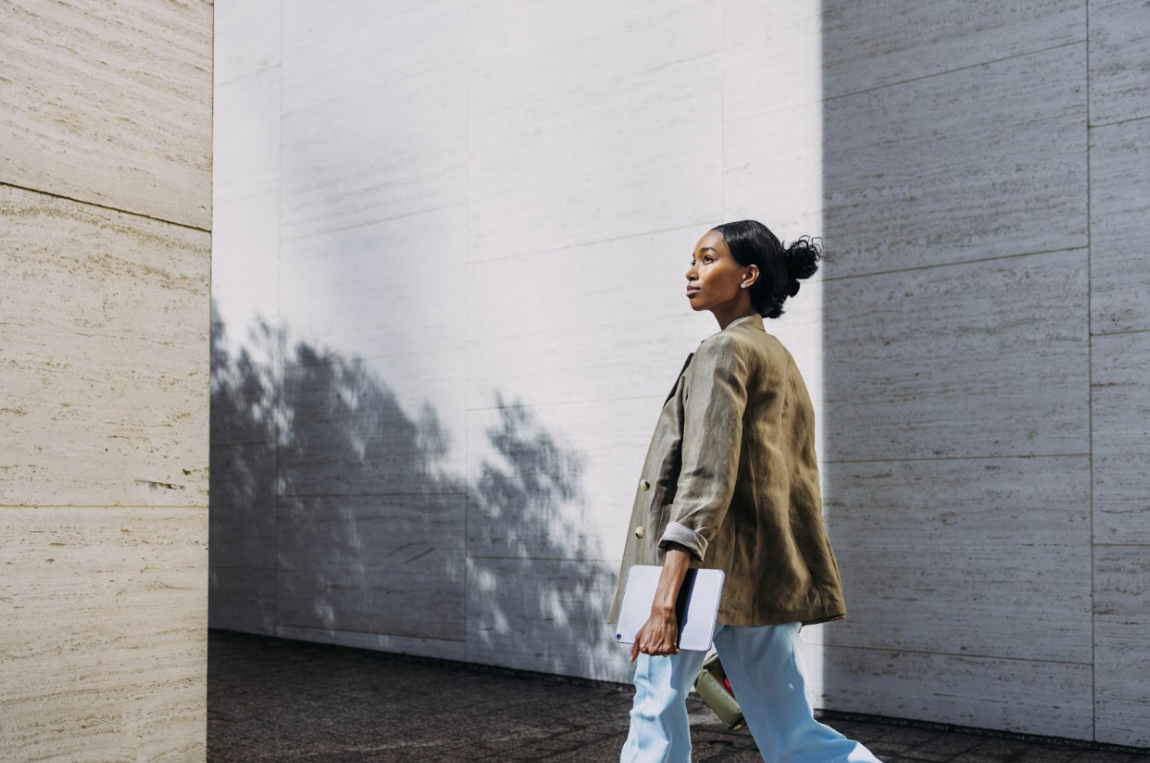










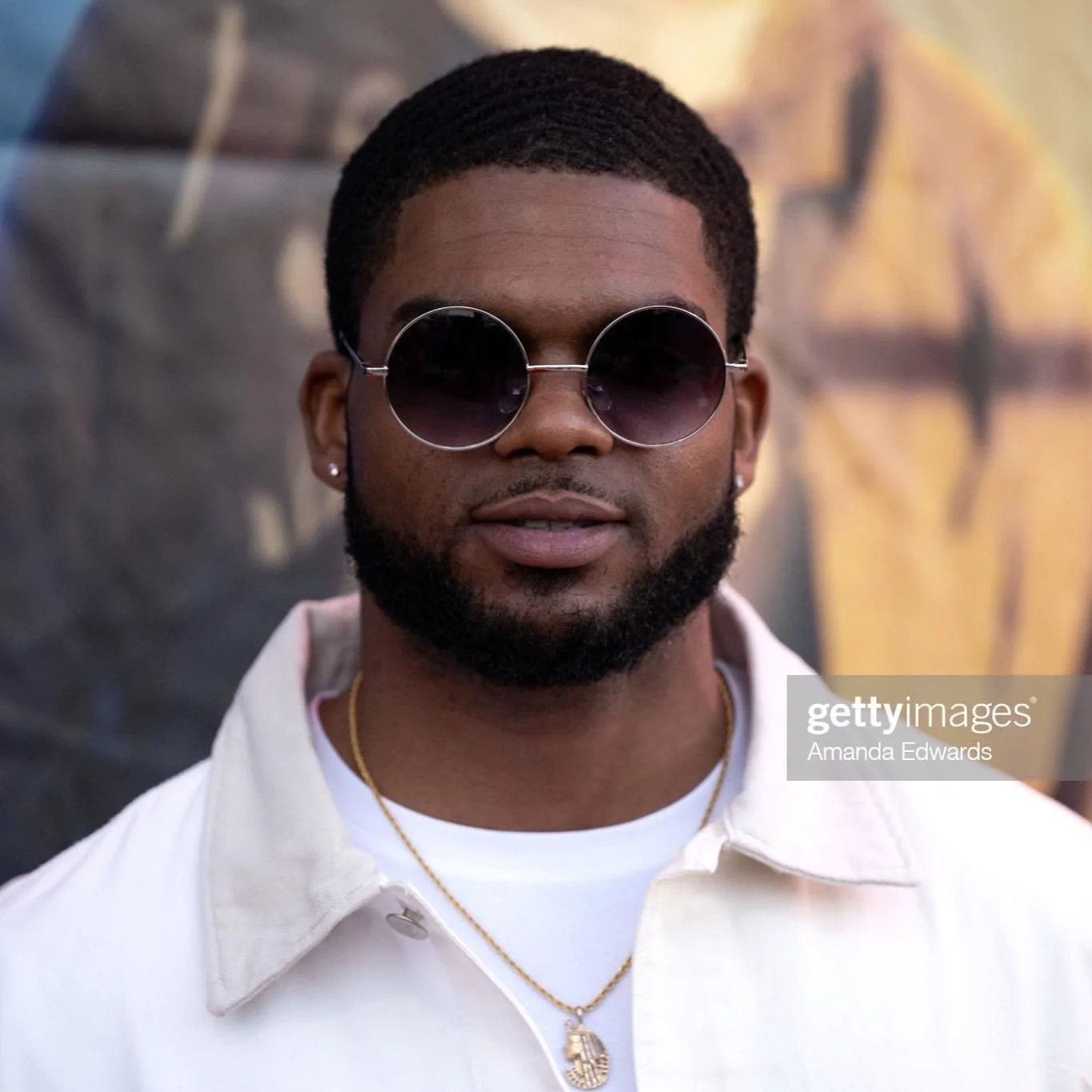






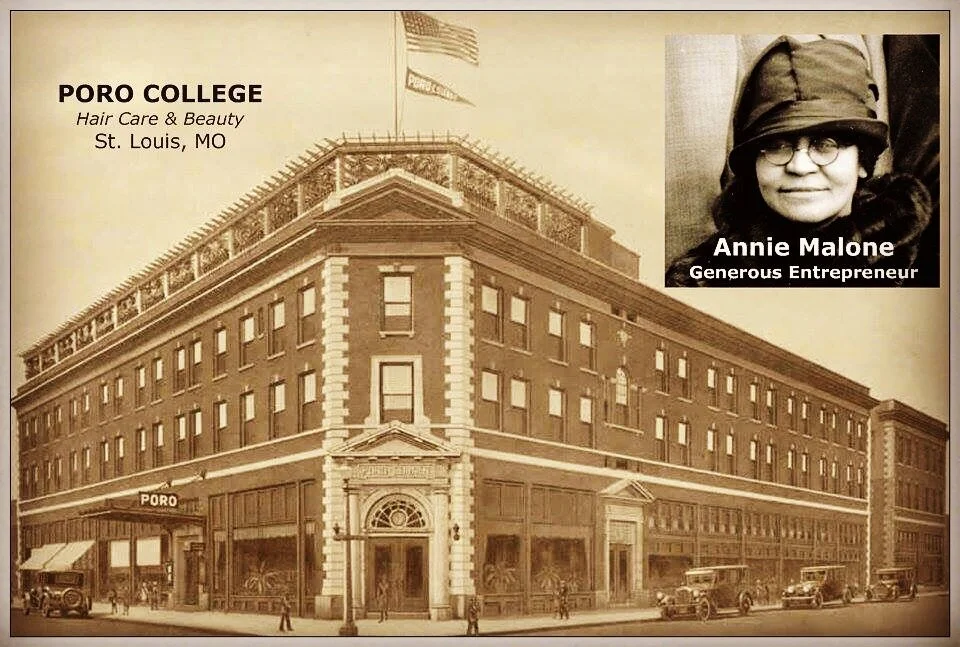









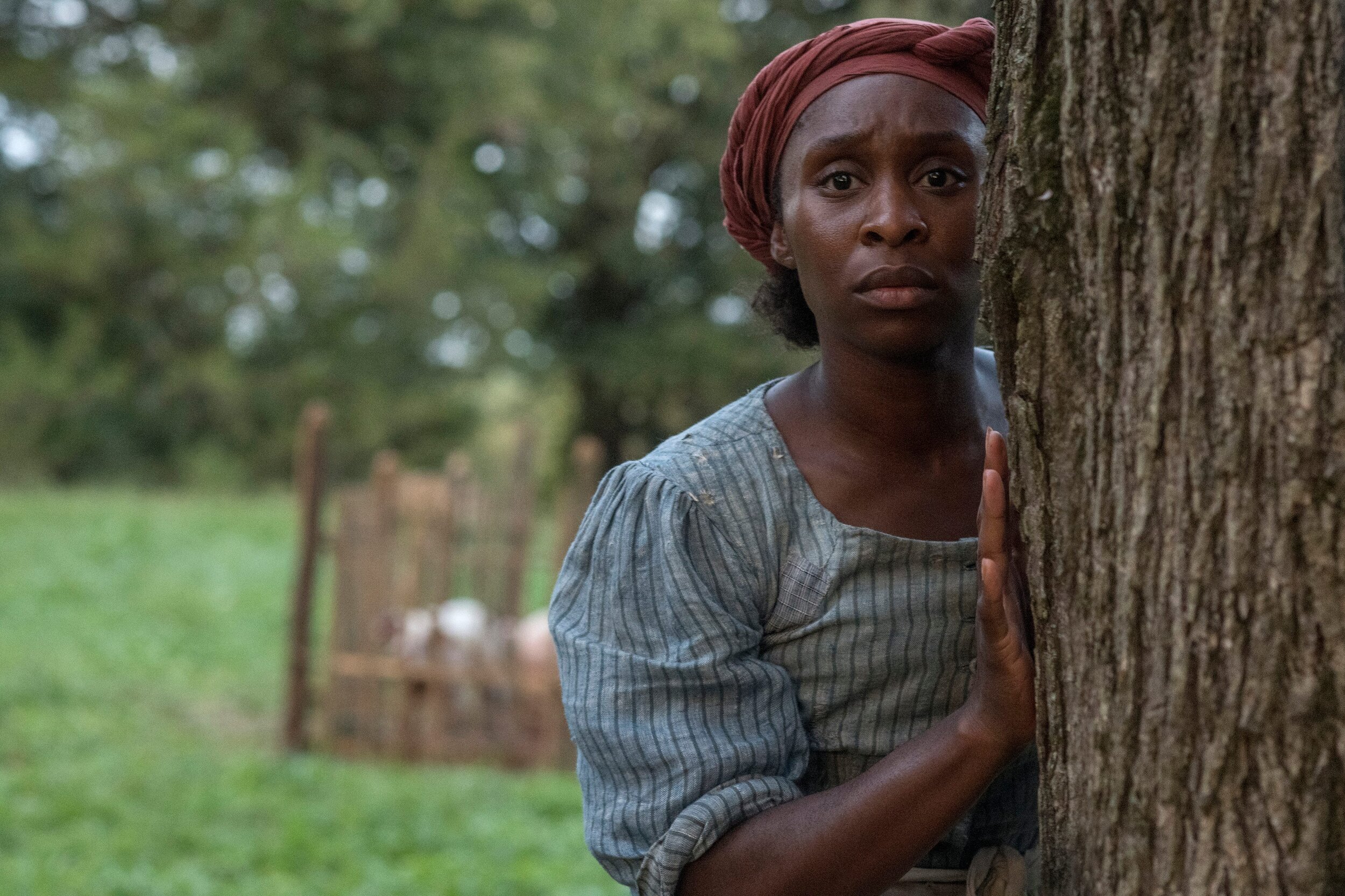

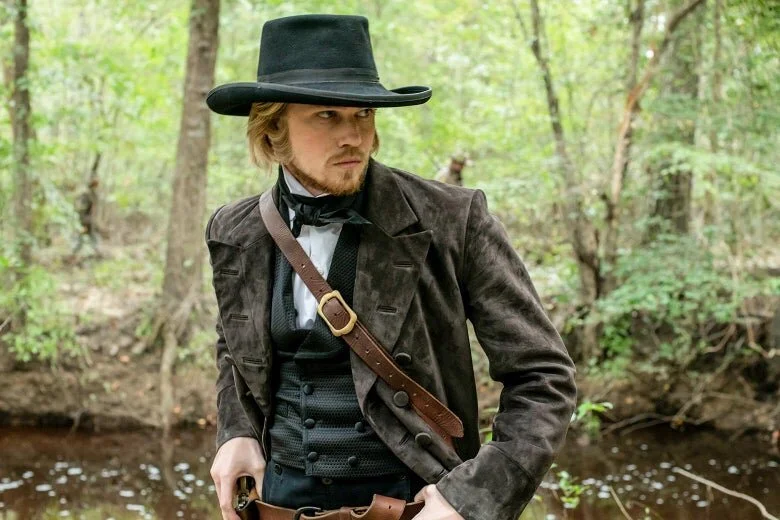

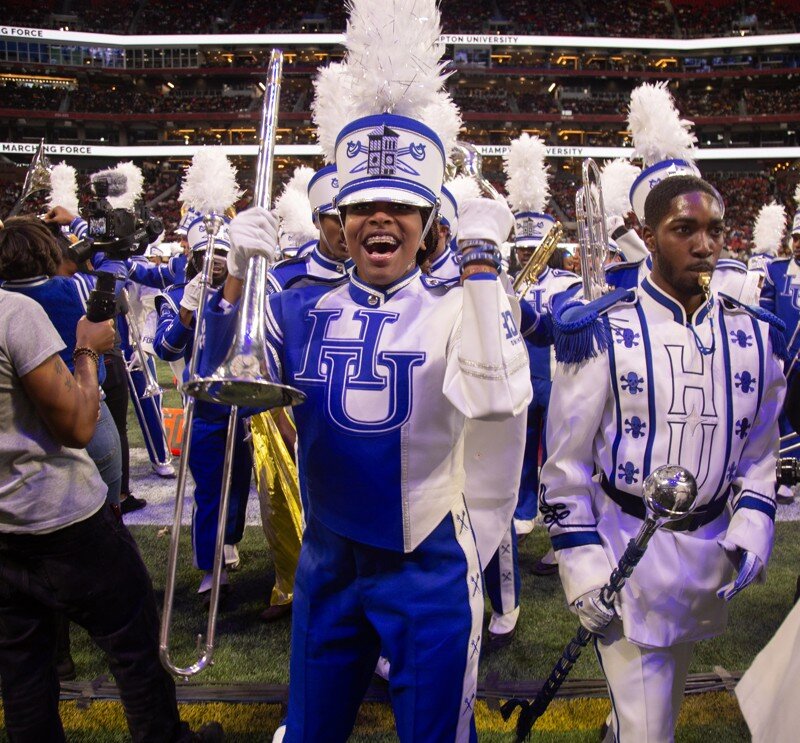
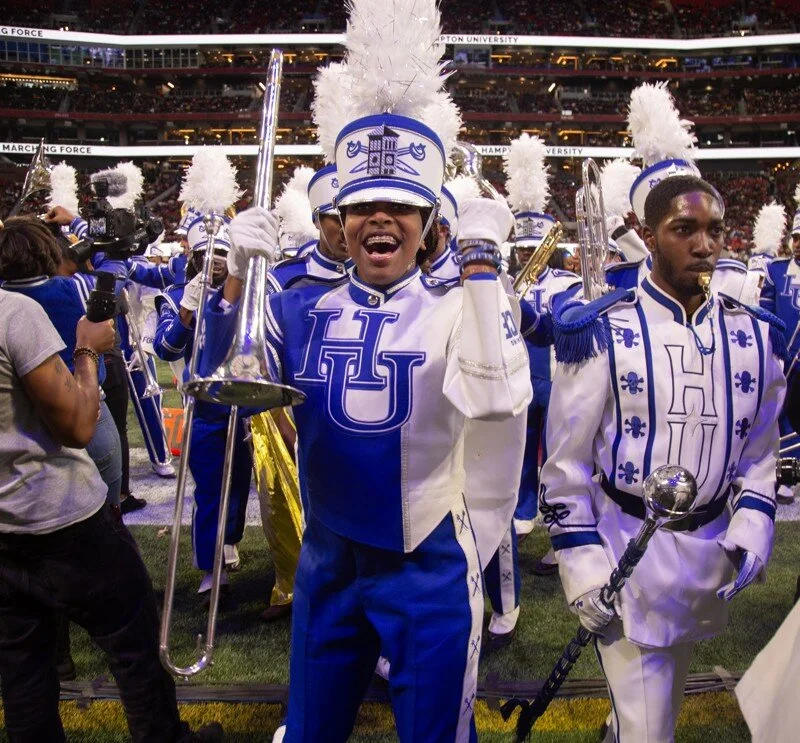
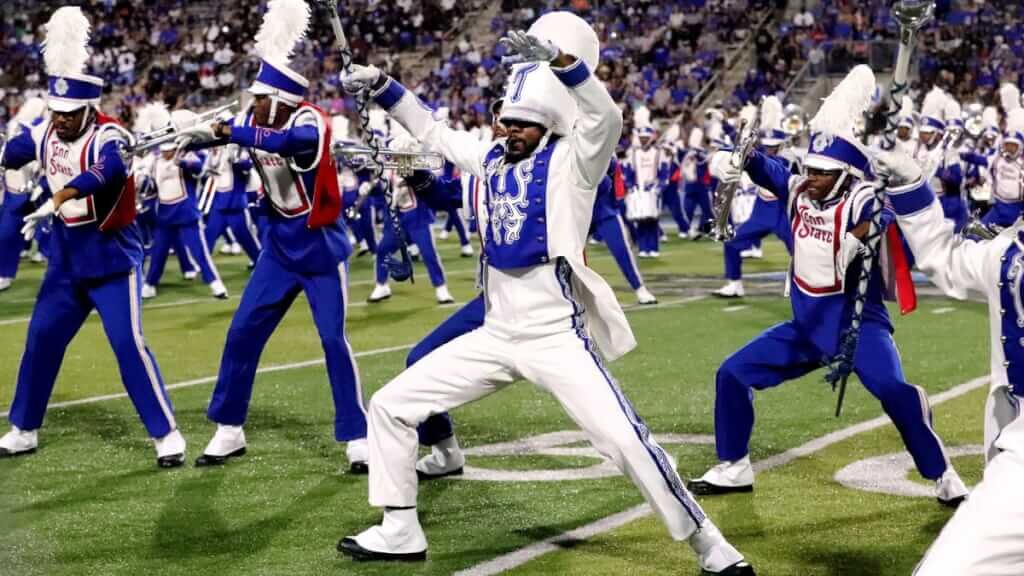
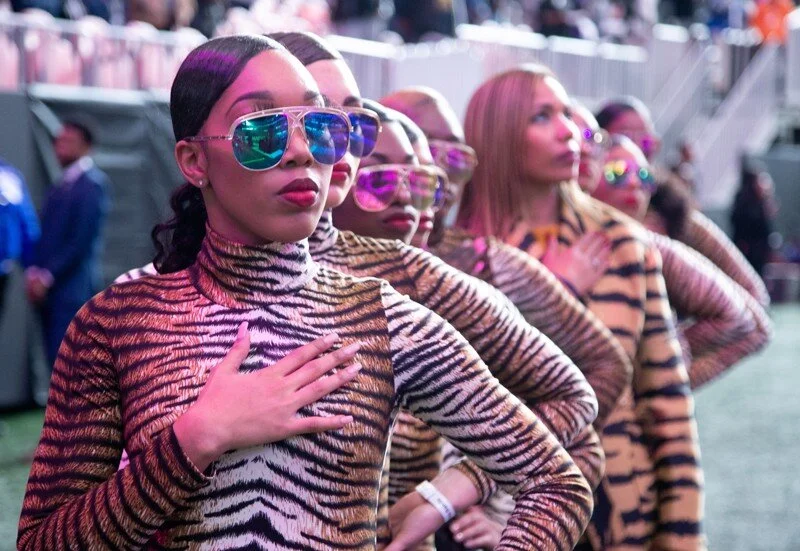
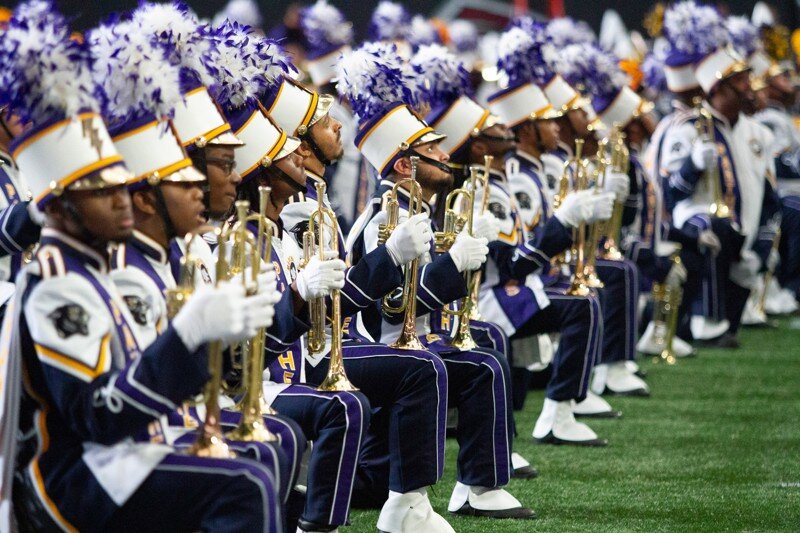

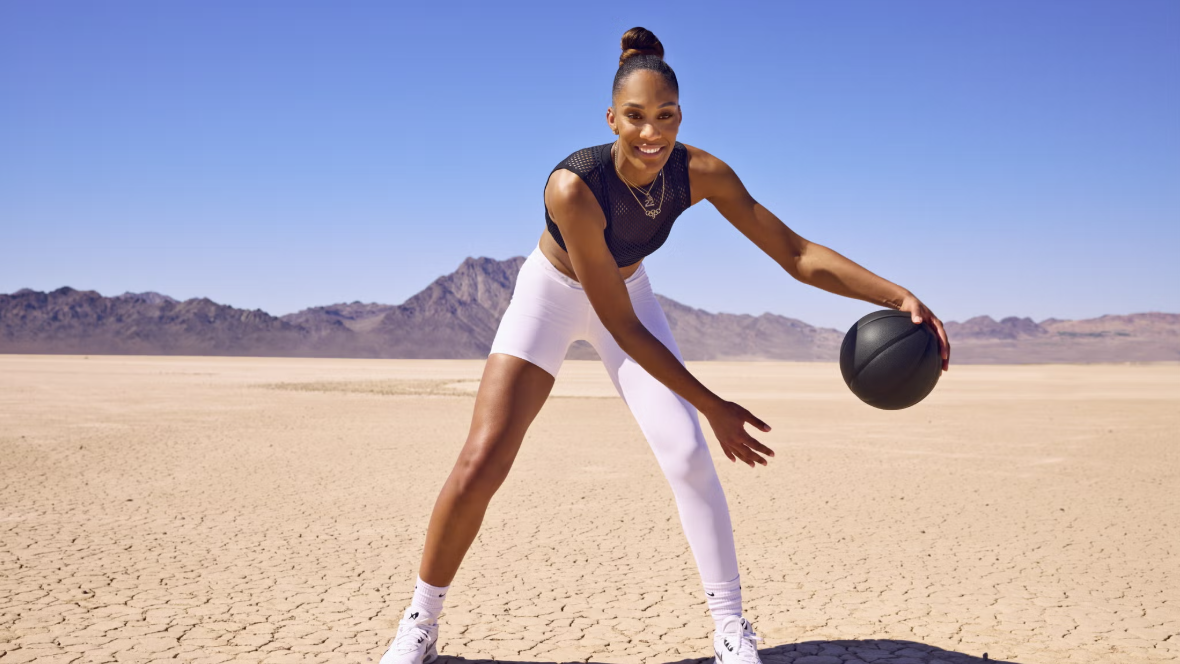
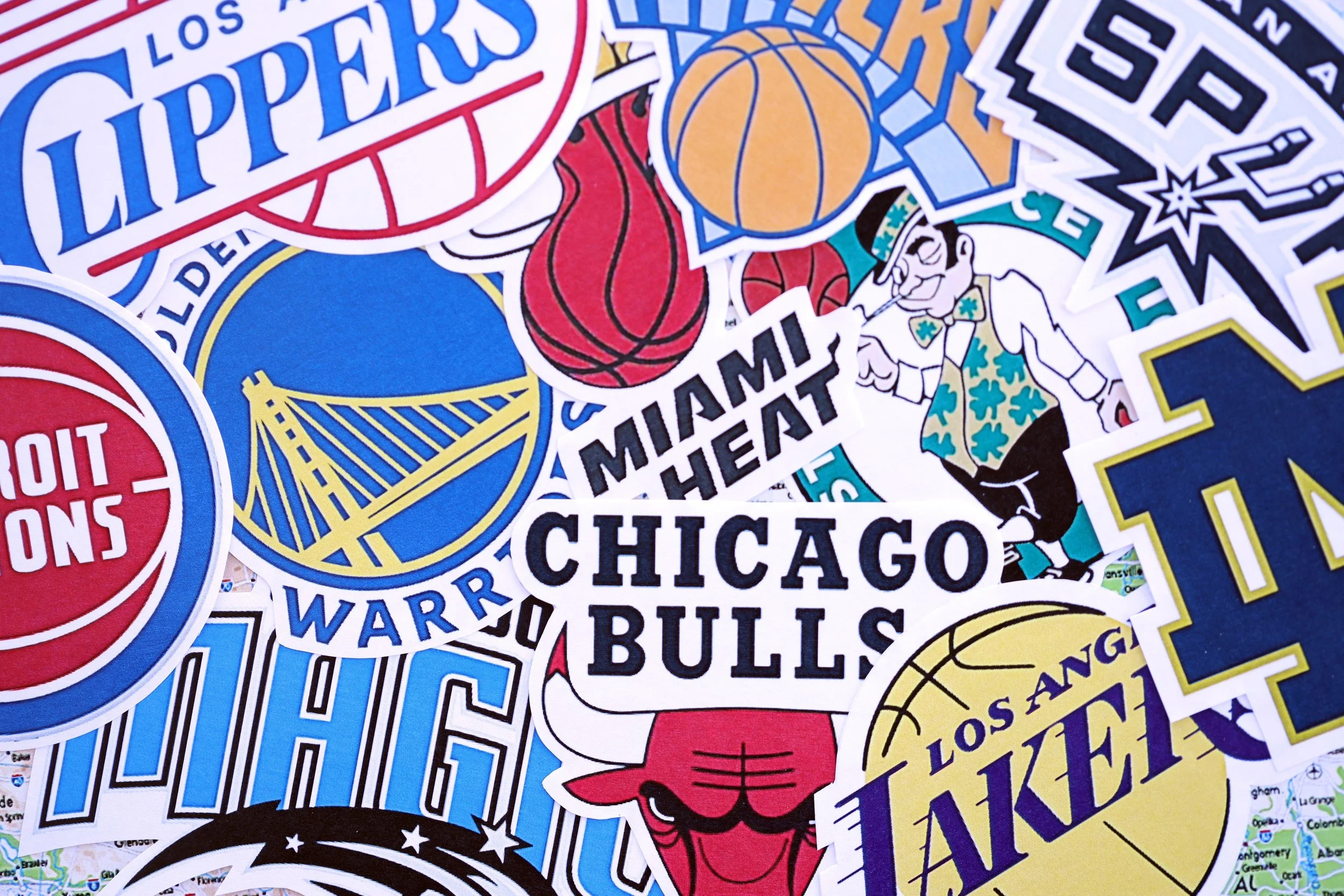














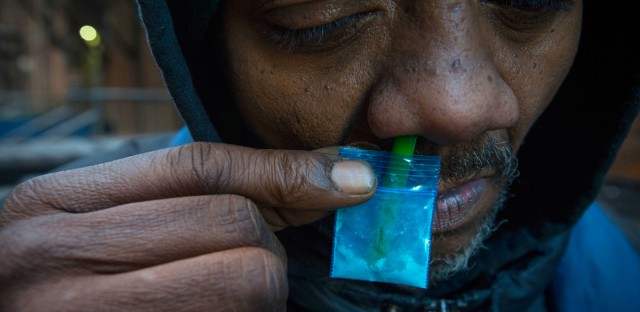







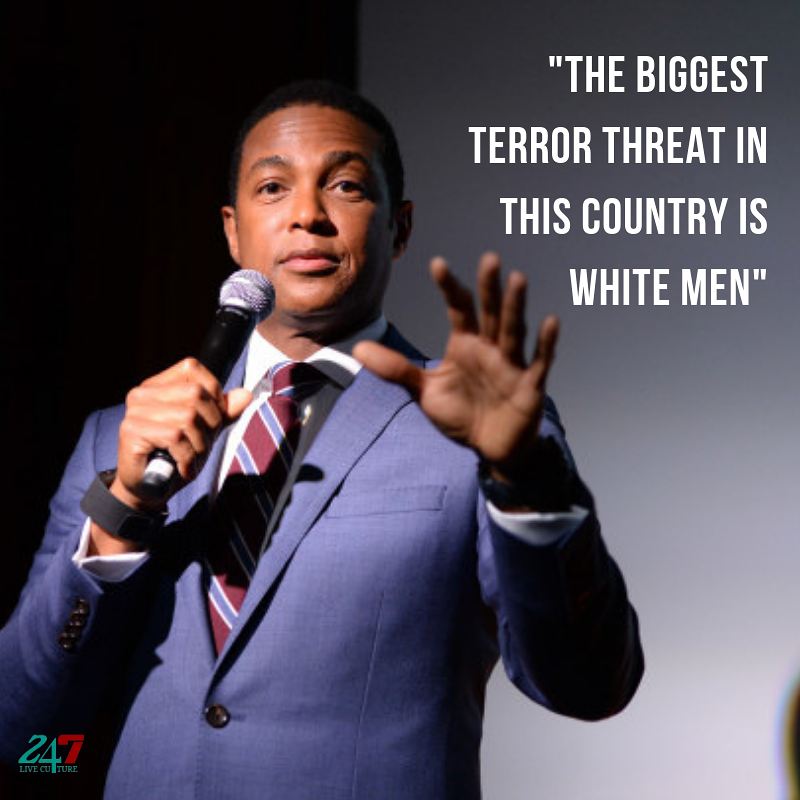





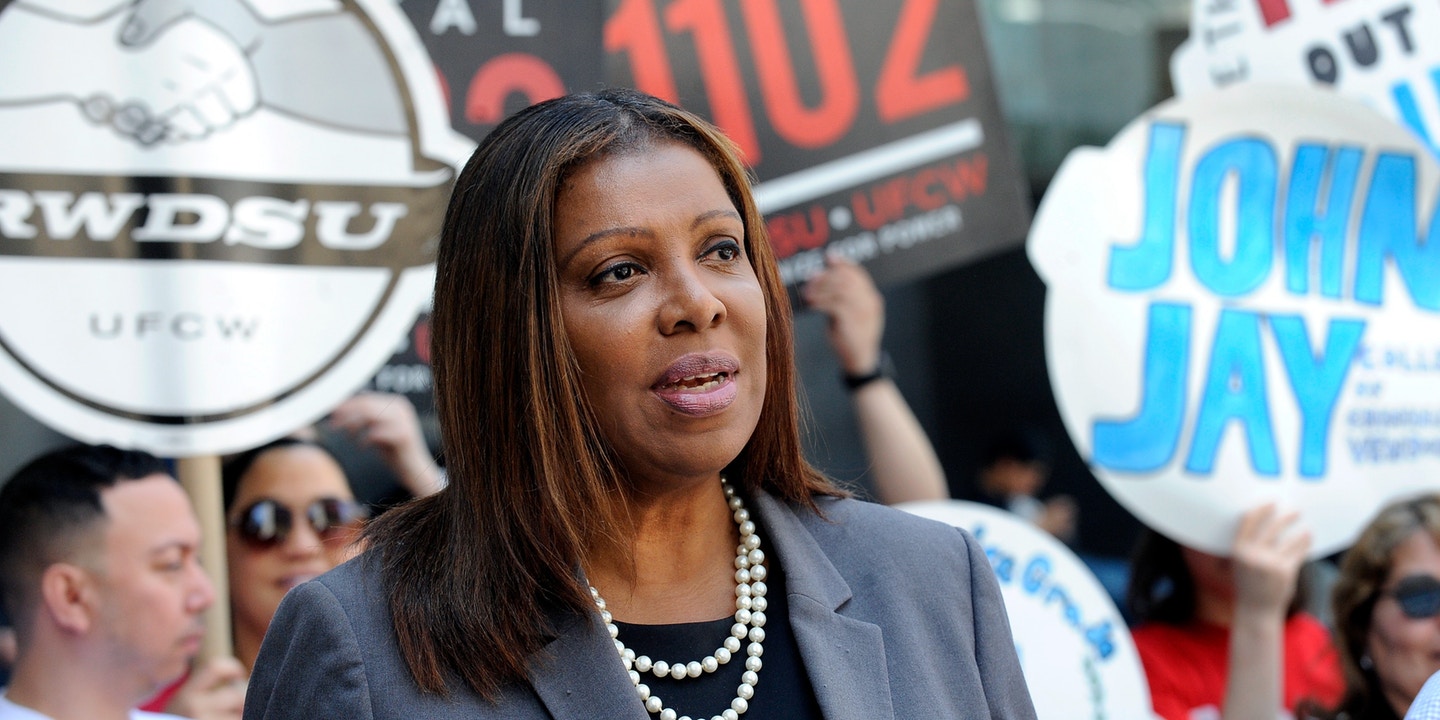
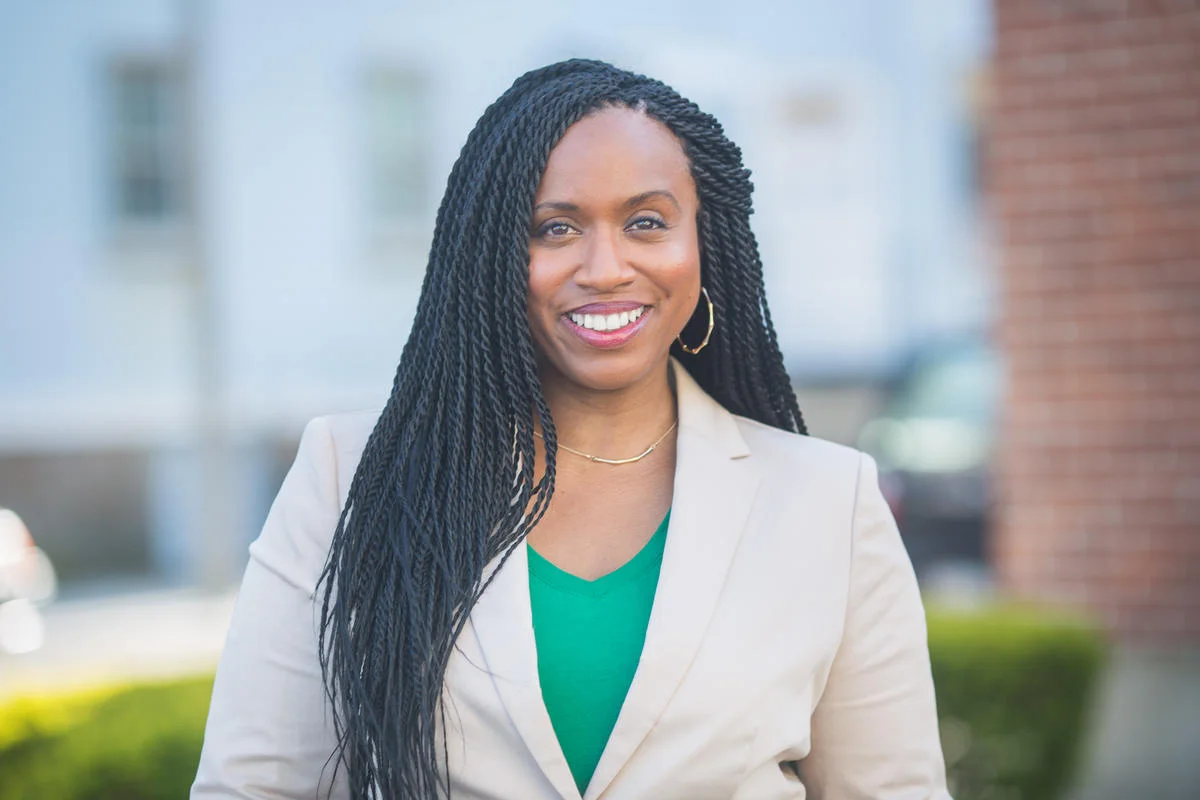


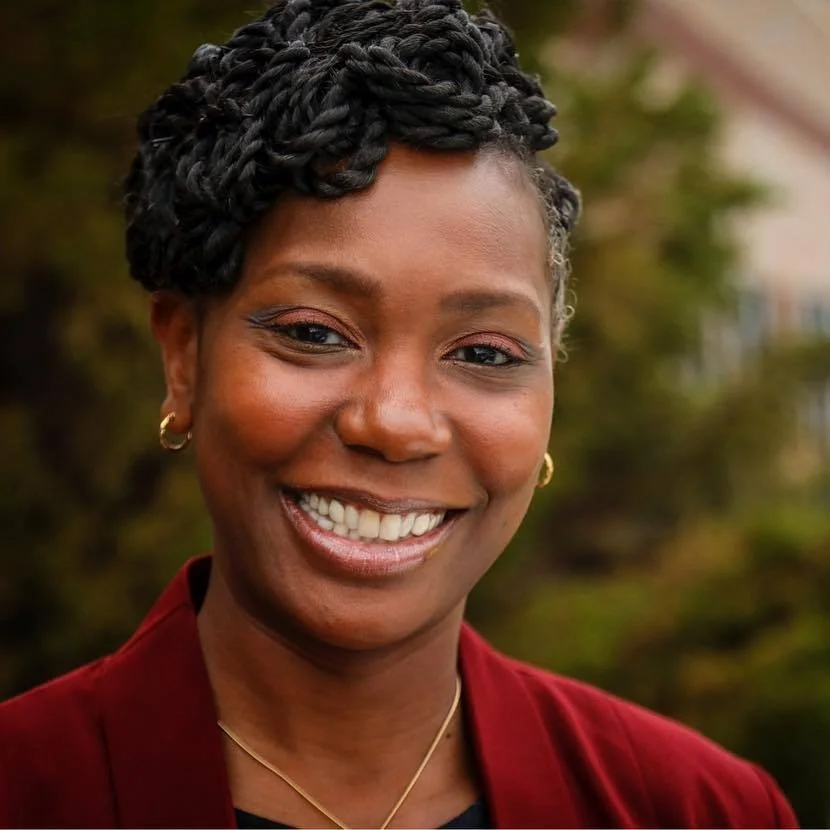




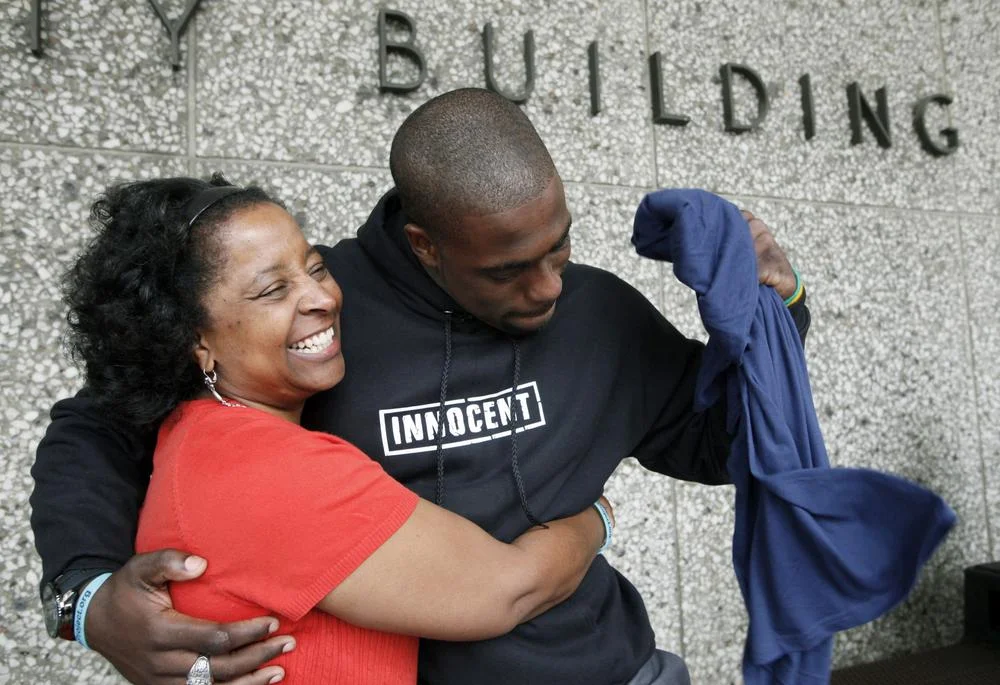


Meet Emily-Ann Brown, contributing writer to 247 Live Culture!